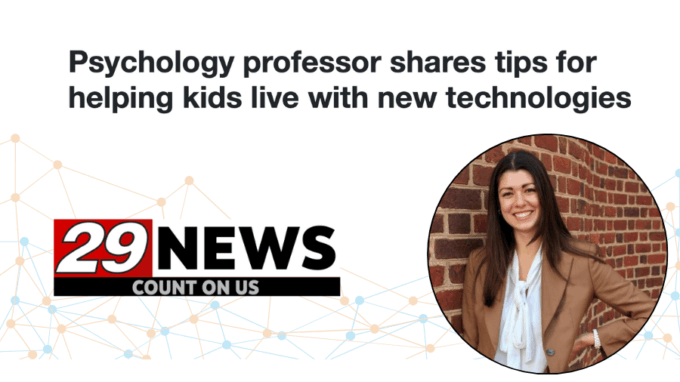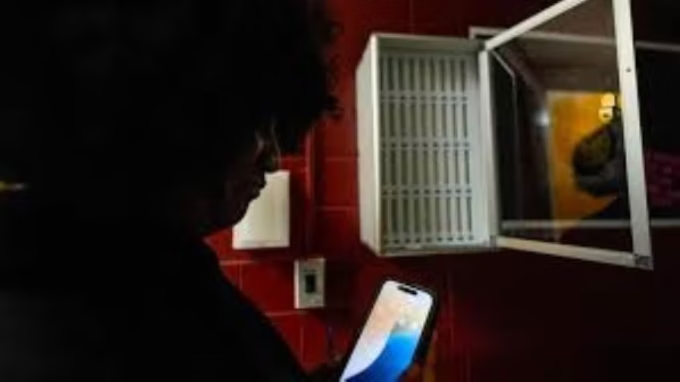Kate Corliss
June 9, 2025
Last week, Governor Glenn Youngkin signed a bill prohibiting cellphones in the state’s public schools. (DC Public Schools just announced that it will implement its own cellphone ban starting in the 2025-26 academic year.) While Virginia joins a considerable list of states that have already restricted cellphone use in classrooms, the Commonwealth is gearing up to regulate youth screen time in a unique way: Starting January 1 of next year, residents under the age of 16 will be limited to one hour of social media scrolling per day. This policy marks another move on Youngkin’s part to mitigate what he has called “a youth mental health crisis driven by the effects of unrestricted cell phone use and addictive social media platforms.”
Washingtonian asked two University of Virginia professors to help us understand how these social media restrictions might be enforced, and whether they could make a positive impact on adolescent mental health statewide.
…
Will social media limits actually benefit youth mental health?
The headache of implementing these restrictions is, of course, accompanied by noble intent: A recent Pew Research Center survey found that approximately 1 in 5 teens say social media platforms hurt their mental health or grades. Nearly half reported that social media use disrupts their sleep. Limiting youth access to these websites seems like an intuitive means of addressing these problems, but according to UVA education professor and child development expert Nancy Deutsch, it’s not a silver bullet.
“There’s a number of things that I think are influencing youth mental health, and while we absolutely want to take seriously when and where social media and digital technology is having a negative impact on youth mental health, it’s not the only thing, and in some cases, it can be used as a tool to support mental health,” Deutsch says. “Youth are in the digital world, so we don’t want to just throw the baby out with the bathwater.”
For one thing, Deutsch notes, “There are young people for whom social media is important for making connections to communities when they don’t feel a sense of belonging and community in their own geographic area.” Nearly one-third of teens surveyed by Pew said social media has a positive impact on their friendships, and more than 60% say these sites offer an outlet for them to express their creativity. “If teens are doing something, they’re doing it to meet a developmental need,” she says. “So what is that need? And if we don’t want them doing that, then how do we meet that need with something else?”
Once Virginia’s new law takes effect, Deutsch encourages parents and teachers to keep an open line of communication with kids to gauge how the limits are affecting them. “What are you using instead? Why are you using it? What are the things you miss? What do you use this for?” she says. “I think when you talk to teens, they also are aware of not wanting to be on [social media] all the time. They’re aware of wanting to have in-person interactions,” and adults can help them “figure out how to proactively set their own limits.”



